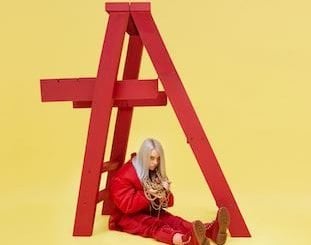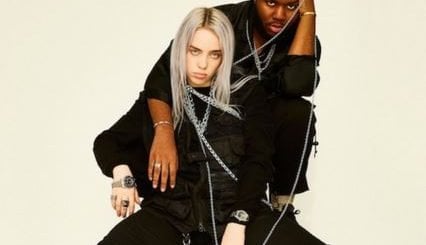Not My Responsibility by Billie Eilish Lyrics Meaning – A Profound Reflection on Body Autonomy and Social Judgment
- Music Video
- Lyrics
-
Song Meaning
- The Spotlight’s Harsh Gaze: Interrogating Fame and Body Image
- The Unnerving Whisper of Judgment: ‘Not My Responsibility’ Explores What Eyes Don’t See
- Body Autonomy and the Crosshairs of Culture: Decoding the Hidden Meaning
- Peeling Back The Layers: The Empowerment in Billie’s Wardrobe Choices
- Courageously Declaring The Verdict: Memorably Owning One’s Narrative
Lyrics
Really know me?
You have opinions
About my opinions
About my music
About my clothes
About my body
Some people hate what I wear
Some people praise it
Some people use it to shame others
Some people use it to shame me
But I feel you watching
Always
And nothing I do goes unseen
So while I feel your stares
Your disapproval
Or your sigh of relief
If I lived by them
I’d never be able to move
Would you like me to be smaller?
Weaker?
Softer?
Taller?
Would you like me to be quiet?
Do my shoulders provoke you?
Does my chest?
Am I my stomach?
My hips?
The body I was born with
Is it not what you wanted?
If I wear what is comfortable
I am not a woman
If I shed the layers
I’m a slut
Though you’ve never seen my body
You still judge it
And judge me for it
Why?
We make assumptions about people
Based on their size
We decide who they are
We decide what they’re worth
If I wear more
If I wear less
Who decides what that makes me?
What that means?
Is my value based only on your perception?
Or is your opinion of me?
Not my responsibility
Crafting a narrative that unfurls the multilayered nuances of Billie Eilish’s powerfully introspective track ‘Not My Responsibility’, reveals a raw and arresting exegesis on the societal scrutiny faced by individuals—particularly women—in the glaring eye of the public. This is not just a song, but a cultural commentary wrapped in a melodic soliloquy which escaped Eilish’s soul, flowed into a microphone, and rippled through the collective consciousness of a generation.
Through her hypnotic vocals and spoken-word delivery, Billie Eilish ushers us into her personal reverie that succinctly mirrors the larger societal dilemma: the relentless policing of body and individual autonomy. Below the surface of this haunting track lies a fathomless chasm of questions and challenges that beckon the listener to both self-reflect and critique the cultural norms dictating our judgments and self-worth.
The Spotlight’s Harsh Gaze: Interrogating Fame and Body Image
Eilish’s opening lines may sound rhetorical, but they unravel the intricate relationship between the self and the observer. Having experienced an ascent to global stardom at a young age, she knows the weight of the world’s gaze. The lyrics paint a chilling portrait of the voyeuristic culture we inhabit, where the aspects of one’s personal life, choices, and body become a communal property – open for critique and for consumption.
With each question, Eilish also indicts the audacity of the observer’s claim to know her based solely on her externalities. What may seem as the simple attire of an artist is often a point of contention or admiration, betraying the fickle nature of public opinion and the undue pressure it places on those in the spotlight to conform or rebel.
The Unnerving Whisper of Judgment: ‘Not My Responsibility’ Explores What Eyes Don’t See
Eilish challenges the pervasive tendency to judge without understanding, a human flaw turning more menacing in the age of digital voyeurism. Her poignant narrative is a pushback against the scrutiny that presupposes knowledge of her character based on the superficial – her clothes, her music, her body. These items stand in as synecdoche for a societal fixation on surface-level attributes.
But it is in her haunting repetition of ‘you have opinions’ that Eilish drills into the listener the ubiquity of judgment, a ghostly companion to anyone who dares to live authentically. Here the song takes us deeper, beneath the membrane of fame, to touch the universal insecurity we harbor of being misunderstood or reduced to our exteriors.
Body Autonomy and the Crosshairs of Culture: Decoding the Hidden Meaning
Aggression towards body autonomy lurks within the lyrics, underscored when Eilish asks, ‘Would you like me to be smaller? Weaker? Softer? Taller?’ These inquiries unveil the paradoxical demands society places on female bodies – to be everything but themselves. Eilish cleverly underscores that these expectations are mutually exclusive, oppressive, and ultimately, an infringement upon personal sovereignty.
The ‘body I was born with’ is a declarative statement of self-ownership and resistance against those who feel entitled to dictate her presentation. By drawing attention to the natural body she inhabits, Eilish makes the profound statement that our inherent worth should not be subject to modification or external approval.
Peeling Back The Layers: The Empowerment in Billie’s Wardrobe Choices
The lines ‘If I wear what is comfortable, I am not a woman / If I shed the layers, I’m a slut’ offer a scathing critique of the Madonna-whore complex still rampant in contemporary society. Clothing, often a form of self-expression, becomes a battleground where Eilish finds herself damned if she does, damned if she doesn’t. This vicious dichotomy is rendered starkly against the sincerity of her delivery, embodying the frustration of countless individuals forced to navigate these narrow corridors of acceptability.
These stark contrasts in her lyrics shatter the illusion that wardrobe choices are trivial or happen in a vacuum, highlighting the significant socio-cultural implications and personal impact they carry. Eilish, in her own defiant way, posits that the decision to cover or bare should not come with moralistic judgments or be anyone’s responsibility but her own.
Courageously Declaring The Verdict: Memorably Owning One’s Narrative
As Eilish weaves through the poetic tapestry of ‘Not My Responsibility’, she reaches a crescendo with the resolute conviction of ‘your opinion of me, not my responsibility.’ This line is not a mere coda; it seals the song as an anthem of self-empowerment and a clarion call to reclaim one’s story from the jaws of public appraisal.
It is a piercing reflection of our times, and an insurgent reclaiming of autonomy. Eilish isn’t asking for permission or offering an apology; she’s stating a fundamental human right – the right to exist as one is, unapologetically and without the burden of others’ prejudices. It’s a memorable line that echoes long after the song fades, reminding us that while we might not control the myriad perceptions of us, we hold the ultimate power in defining our responsibility towards them.








